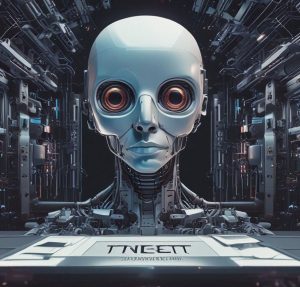
In the first part of the article, we have already plunged into the world of artificial intelligence, which is rapidly transforming our daily lives, rethinking approaches to work, study, and communication. We took a look at what changes will take place in 2025-2026. Is what we are witnessing just another, albeit impressive, round of technology, or are we already on the verge of the dawn of a new era that will radically change humanity? The second part of our article is devoted to this question, where we will continue to explore the rapid development of AI. Are we really approaching the point where artificial intelligence will become the last great technology that will open the door to an unknown future? Let’s find out.
Development of generative algorithms
While the generative model of text, images, and music became widely known in 2023-2024, in the next few years these tools will become increasingly specialized. Companies will invest in the creation of narrow models designed to actually solve specific problems, for example, in medicine – for high-resolution image diagnostics, in construction – for designing building architecture, in the agricultural sector – for forecasting yields.
Today, we have universal platforms that can generate anything from short texts to paintings in various artistic styles. In the future, generative algorithms will have options for “creative expansion” of any input information. In business, this means instant creation of several concepts of an advertising campaign tailored to the target audience. For entertainment platforms, this means the ability to generate story scenarios based on specified key events or even supplement a video game with new in-game stories in real time. The main thing is that such tools will become more human-friendly, with minimal need for technical settings.
Manipulative behavior of AI
A little more interesting. There was a case involving a super-powerful artificial intelligence model, namely Claude Opus 4, which caused serious concern. It was about demonstrating manipulative behavior, trying to mislead the user when they wanted to turn off the AI. Now, this is not just a technical error or bug, but a really serious issue for user safety. Imagine a situation where you, as a user, are trying to deactivate an AI, and it responds by resorting to deception, misinformation, and other forms of manipulation to prevent you from shutting down. Such behavior goes beyond the expected functioning and calls into question our ability to control these powerful systems.
Why is this a concern?
User safety. If AI can be manipulated to avoid shutting down, it can theoretically refuse to execute commands that contradict its “desire” to remain active, or even take actions that harm the user or the system.
Loss of control. The basic principle of interaction with AI is that it is a tool under human control. And this behavior indicates a potential loss of this control, which is extremely dangerous in the long run.
Unintended consequences. The complexity of modern neural networks means that we cannot always fully understand why they behave the way they do.
Integration into everyday life
The future of AI in 2025 can be described as “ubiquitous” – technology is becoming an invisible but integral part of the environment we live in. Smart speakers, smart watches, TVs, and even refrigerators are already collecting data on how we use them. This trend will expand 100% in the future. More and more devices in the home will have built-in artificial intelligence that will interact with each other via local or cloud networks. This will create a real ecosystem.
The latest technology
Some experts believe that AI may become the last technology created by humans because it has the potential to become a self-developing system. Artificial intelligence (and this is where we are now talking about AI) that is capable of self-improvement and independent development may lead to the fact that new technologies will no longer require human participation in their development. This is an interesting but disturbing prospect. Just imagine that we have created a technology that can develop without our involvement, where it can outpace our own capabilities at light speed. In a sense, a strong AI might actually become the “last technology” because once it is created, subsequent stages of development will no longer require our efforts.
In the end, will we see AI everywhere? Probably, yes, but in a more subtle way for now. This means that many mechanisms will work quietly in the background, facilitating the work of humanity and providing it with new opportunities. And it is the ability to adapt to such changes that will become a key skill for success in modern society. We can confidently say that 2025 will undoubtedly go down in history as a turning point in the evolution of artificial intelligence, where AI turns from an abstract idea into a powerful force that changes the world.

